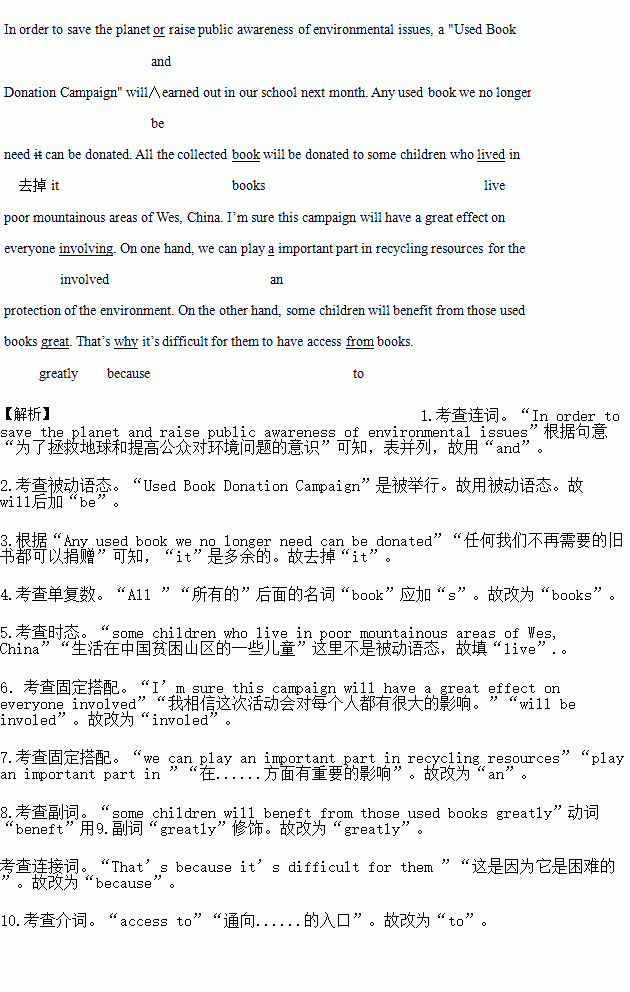��Ŀ����
�ٶ�Ӣ�������ʦҪ��ͬ��֮�佻�������ģ���������ͬ��д���������ġ����й���10�����Դ���ÿ��������������������漰һ�����ʵ����ӡ�ɾ�����ġ�
���ӣ���ȱ�ʴ���һ��©�ʷ��ţ��ģ�������������д���üӵĴʡ�
ɾ�����Ѷ���ļ���б�ߣ�\��������
�ģ��ڴ��Ĵ��»�һ���ߣ����ڸô�����д���ĺ�Ĵʡ�
ע�⣺1.ÿ���������ľ�����һ�ʣ�
2.ֻ������10��������(�ӵ�11���𣩲��Ʒ֡�
In order to save the planet or raise public awareness of environmental issues, a ����Used Book Donation Campaign�� will earned out in our school next month. Any used book we no longer need it can be donated. All the collected book will be donated to some children who lived in poor mountainous areas of Wes, China. I��m sure this campaign will have a great effect on everyone involving. On one hand, we can play a important part in recycling resources for the protection of the environment. On the other hand, some children will benefit from those used books great. That��s why it��s difficult for them to have access from books.
| A�� | each | B�� | it | C�� | this | D�� | one |
| A�� | perform | B�� | performing | C�� | to perform | D�� | being performed |


 I saw my seven-year-old son, Paul.
I saw my seven-year-old son, Paul.